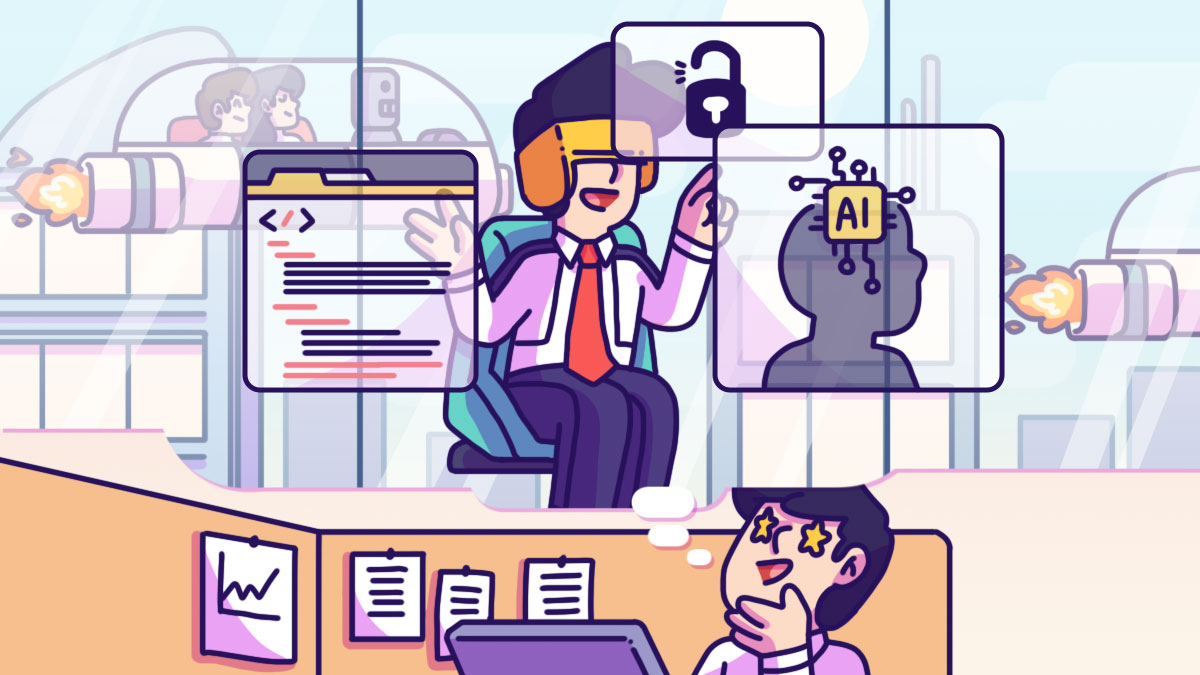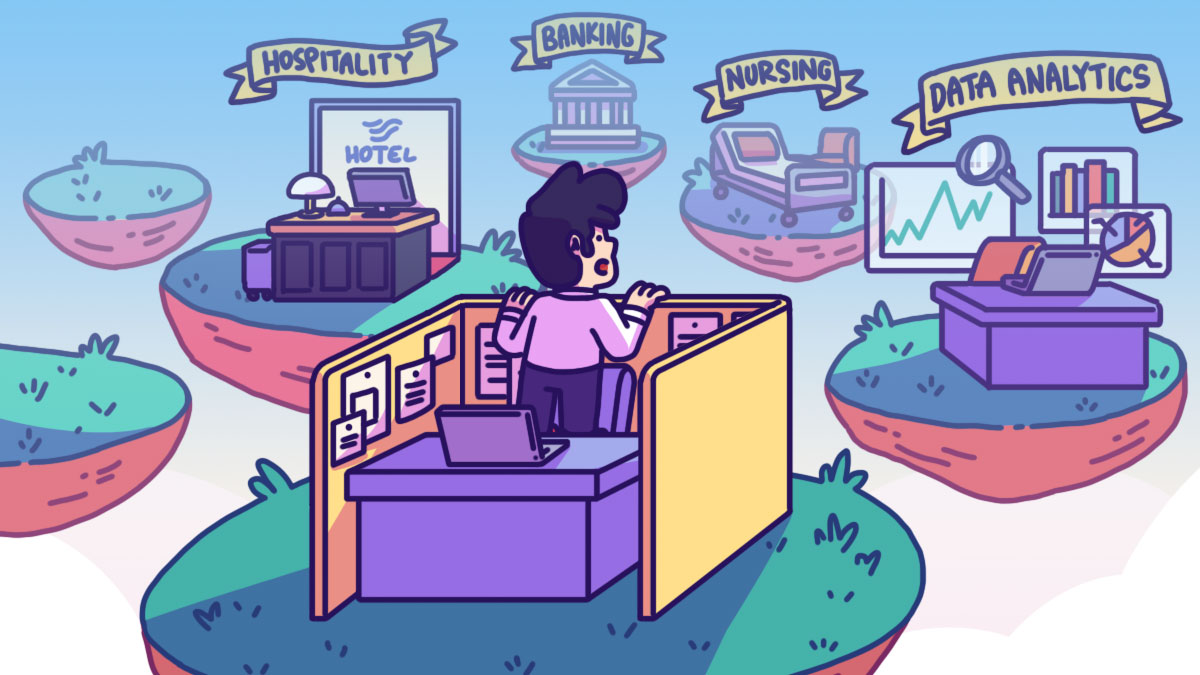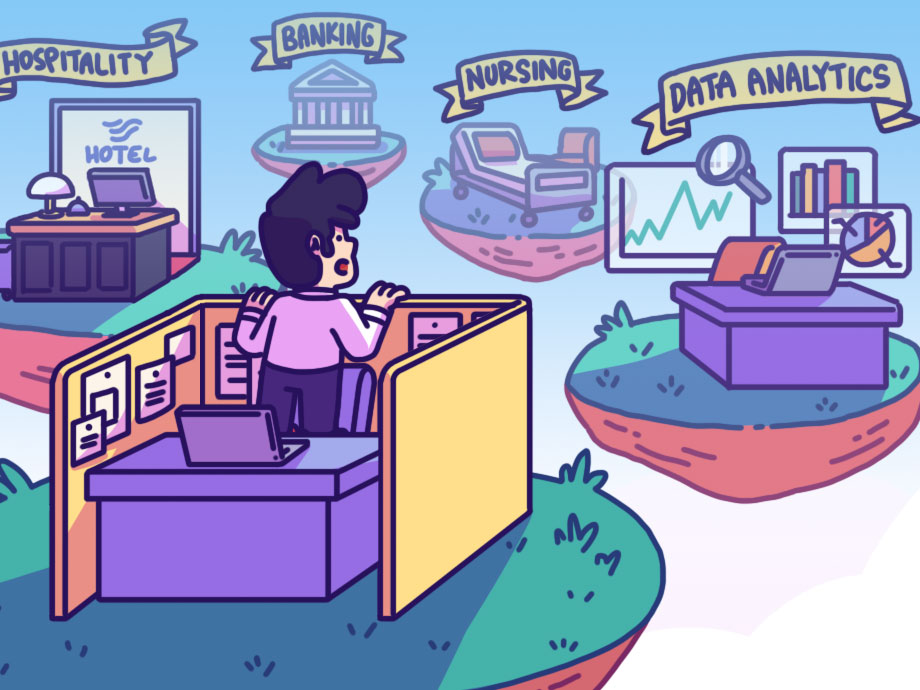Career & Education | Life | Article
What Is a Job of the Future and What Skills Do I Need to Land a Position Now?
by The Simple Sum | 30 Oct 2024

This content is brought to you by Kaplan (Singapore).
In today’s competitive job market, the key to securing a job lies in the skills and expertise you can offer a company.
Therefore, to boost your chances of getting hired, it is important to develop skills that meet both the current and future demands of the job market to ensure your long-term relevancy.
This principle becomes even more apparent when you enrol in a course or pursue a Degree. The real challenge, however, is in understanding which skills are in demand both now and in the future because you want to avoid ending up with a qualification that could become outdated after years of study.
Thankfully, The World Economic Forum’s The Future of Jobs Report 2023 can help with that.
The report, which explores how jobs and skills will evolve over the next five years, states: “Technological advancement through increased adoption of new and frontier technologies and increased digital access are expected to drive job growth in more than half of surveyed companies”.
As we shift towards a digital economy, IT has become one of the most sought-after jobs. Among the technologies that have wide adoption are big data, cloud computing, and Artificial Intelligence (AI).
Kaplan (Singapore), in partnership with the University of Portsmouth, offers dynamic IT programmes that focus on practical experience and cutting-edge research that provides education that goes beyond the classroom. These programmes equip students with the skills needed to thrive in today’s fast-paced digital economy.
If you are looking to embark on or transition to a career in IT, you will need specific qualifications depending on your desired specialisation and career path. However, there are core technical skills that are in high demand across the industry.
Related
Cyber Security
As our digital world expands, more sensitive data is being shared online every day, increasing the risk of cybercrimes. Organisations and governments are continuously seeking experts who can safeguard their data and prevent network or database security breaches from taking place.
Much like a detective in the physical world, cyber security professionals must be adept at analysing digital evidence, identifying and responding to threats, and solving cybercrimes.
To excel in this field, you need a strong grasp of network security, encryption, and computer forensics. You will also need to be up to date about the many different cyber threats like malware, phishing, and ransomware.

Artificial Intelligence (AI)
Self-driving cars, smart robots, intellectual chatbots, and intelligent diagnostic systems are no longer a thing of the past thanks to AI technologies that enable computers to learn and solve problems like humans.
To excel in this field, you need a thorough understanding of AI theory, methods, systems, and software design and development. Mastering these areas will also require proficiency in programming languages that are commonly used in AI, such as Python. While you might not be able to converse with actual snakes, you can expect to attract numerous job offers from the IT sector.
Software Engineering
Software engineers are skilled in managing the entire software development lifecycle, from initial design to ongoing maintenance.
To excel in this field, you need a solid foundation in computer science or engineering, as success relies on your ability to apply coding skills, problem-solving techniques, and design principles to work with algorithms and data structures.
You will also have to learn popular programming languages such as JavaScript and Dart.
Cloud Computing
More and more businesses are turning to cloud services to bring down their infrastructure costs, improve accessibility, and streamline their operations. This is where cloud professionals play a crucial role, assisting organisations in implementing, managing, and optimising cloud systems to ensure data security, compliance, and cost-efficiency.
Related
Computer Science
Computing is such a big part of our daily lives, as many of us rely on computers for work and personal tasks. And we have computer science to thank for that!
Computer science, which is the study of computer hardware and software, encompasses many of the skills that are needed in IT such as cyber security, data structures and algorithms, networking and operating systems, and programme design.
To excel in this field, you must understand key concepts such as programming languages, data structures, and algorithms, and should always be up to date with industry trends.
Sponsored content by Kaplan (Singapore)
Are you ready to dive into the dynamic world of IT? Kaplan (Singapore) in partnership with the University of Portsmouth, offers a range of IT programmes designed to equip you with the necessary skills for the modern digital economy.
Emphasising hands-on practical learning and industry relevance, these programmes are ideal for anyone looking to build their career in IT or transition into the field. The University of Portsmouth is ranked one of the Top 5 Young Universities in the UK by Times Higher Education World University Rankings 2024, was awarded a 5-Star rating for excellence in the QS World University Rankings 2024 and a Gold rating in the Teaching Excellence Framework (TEF) assessment in 2023, so you know you are in good hands.
If you are looking to future-proof your career, explore the diverse Diploma and Postgraduate programmes offered by Kaplan (Singapore). With options for full-time or part-time programmes, as well as blended and 100% in-person classes, you can find a format that fits your schedule and goals.


















